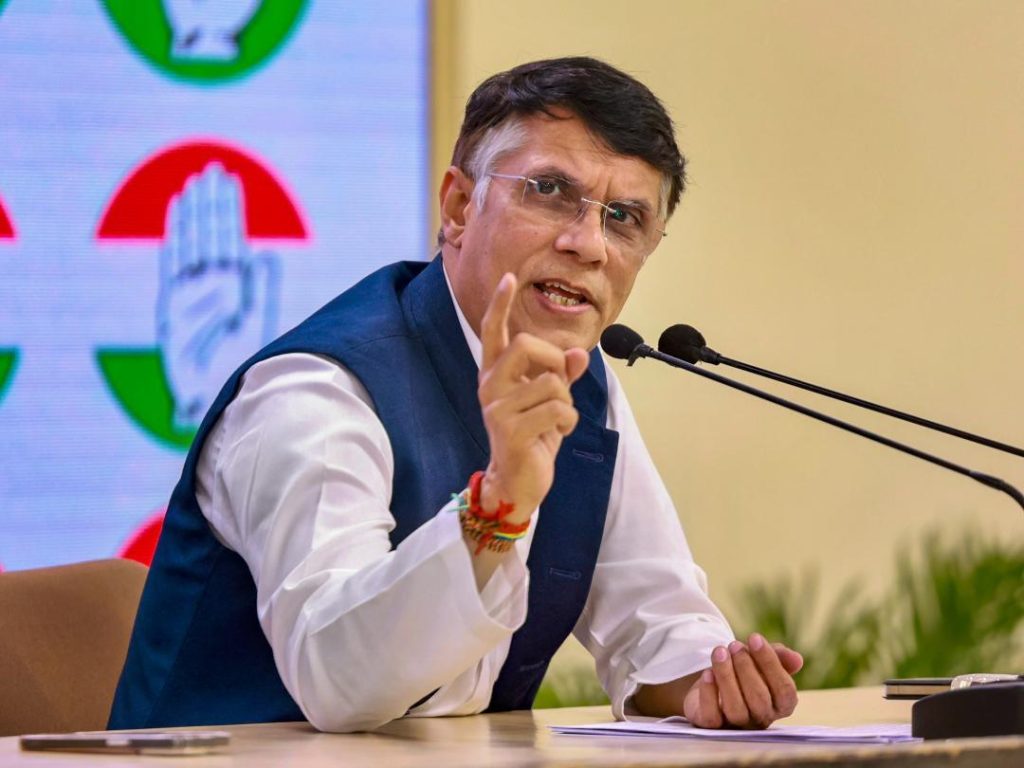
Israel Shares Map Showing J&K in Pakistan, Apologises Later
In a shocking turn of events, the Israel Defense Forces (IDF) recently shared a map that showed Jammu and Kashmir (J&K) as a part of Pakistan, leaving many stunned and outraged. The map, which was shared on the IDF’s official Twitter handle, depicted the entire region of J&K as a part of Pakistan, including the Indian-administered territories.
The incident sparked widespread condemnation and criticism, with many questioning the intentions behind sharing such a map. The Congress leader, Pawan Khera, was one of the first to react to the development, saying, “Another day, another feather in Vishwaguru’s cap. His ‘friend’ shows J&K as a part of Pakistan.” (1)
Khera’s statement was a clear reference to the close ties between Israeli Prime Minister Benjamin Netanyahu and Indian Prime Minister Narendra Modi, who have been known to share a strong bond. The remark was seen as a subtle jab at Modi, suggesting that the Israeli government’s actions were a manifestation of the Indian PM’s supposed closeness to Netanyahu.
The IDF, however, later issued an apology for the map, saying that it was an illustration and did not depict precise borders. The statement read, “We would like to clarify that the map we shared is an illustration and does not represent our official stance or position on the borders of Jammu and Kashmir. We understand the sensitivity of this issue and regret any misunderstanding it may have caused.” (2)
The controversy surrounding the map has raised several questions about the nature of Israel’s relationship with India and its stance on the Kashmir issue. While India and Israel have traditionally enjoyed strong diplomatic ties, the sharing of a map that shows J&K as a part of Pakistan has sparked concerns about Israel’s potential biases towards Pakistan.
The Israeli embassy in India has been facing criticism over the issue, with many demanding an explanation for the sharing of the map. The Indian government has also been put on the spot, with opposition parties demanding an inquiry into the matter.
The incident highlights the delicate nature of international relations and the need for countries to be mindful of the sensitivities involved in sharing information. While the IDF’s apology has helped to ease tensions, the controversy has left many wondering about the true intentions behind the sharing of the map.
In recent years, Israel and India have strengthened their ties, with the two countries signing several agreements and cooperating on issues such as defense and technology. However, the Kashmir issue has always been a sensitive topic in India, and the sharing of a map that shows J&K as a part of Pakistan has sparked concerns about Israel’s potential biases towards Pakistan.
The incident also raises questions about the role of social media in shaping public discourse. The sharing of the map on Twitter was followed by a flurry of reactions and comments, both pro and anti-Israel. The incident highlights the need for individuals and organizations to be cautious when sharing information on social media, particularly when it comes to sensitive topics like international borders.
In conclusion, the sharing of a map showing Jammu and Kashmir as a part of Pakistan by the Israel Defense Forces is a controversy that has sparked widespread outrage and criticism. While the IDF’s apology has helped to ease tensions, the incident highlights the need for countries to be mindful of the sensitivities involved in sharing information. The incident also raises questions about the true intentions behind the sharing of the map and the role of social media in shaping public discourse.
References:
(1) https://x.com/Pawankhera/status/1933549006367416545
(2) https://www.idf.il/en/ministry-of-defense/news/2023/02/15/clearing-up-a-misunderstanding/






